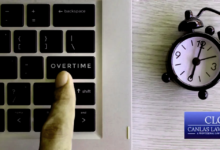Top 10 Facts About Bail And Pretrial Release In Criminal Defense

Top 10 Facts About Bail And Pretrial Release In Criminal Defense? If you find yourself facing criminal charges, you may have questions about bail and pretrial release. Understanding the bail system and the options available to you is crucial during the criminal defense process. In this article, we will explore the top 10 facts about bail and pretrial release to provide you with valuable insights.
The Importance of Bail and Pretrial Release
When an individual is arrested and charged with a crime, they are generally entitled to seek release from custody before their trial. Bail and pretrial release play a crucial role in the criminal justice system by allowing defendants to await trial outside of jail, ensuring their constitutional right to due process.
Definition of Bail and Pretrial Release

Bail refers to the process of securing the temporary release of a defendant in exchange for a financial deposit. Pretrial release, on the other hand, encompasses various alternatives to bail, such as personal recognizance, supervised release, or conditional release.
Purpose of Bail and Pretrial Release
The primary purpose of bail and pretrial release is to ensure that defendants appear in court for their trial. By allowing individuals to be released from custody, the criminal justice system seeks to strike a balance between protecting the community and respecting the defendant’s rights.
Factors Considered for Bail Determination
When determining bail, several factors are taken into account, including the severity of the offense, the defendant’s criminal history, ties to the community, flight risk, and the potential danger the defendant may pose to others.
Read More: 7 Important Work of Personal Injury Lawsuits in the USA
Types of Bail and Pretrial Release Options

There are various types of bail and pretrial release options available, depending on the jurisdiction and the circumstances of the case. These can include cash bail, surety bonds, property bonds, release on recognizance, or the use of electronic monitoring devices.
Bail Bonds and Bail Bondsmen
In cases where cash bail is set, defendants may seek assistance from a bail bondsman. A bail bondsman typically charges a non-refundable fee, usually a percentage of the total bail amount, and provides a guarantee to the court that the defendant will appear for trial.
Conditions and Restrictions of Bail and Pretrial Release
Bail and pretrial release often come with specific conditions and restrictions. These may include regular check-ins with a pretrial services officer, travel restrictions, drug testing, or orders to maintain employment or attend counseling programs.
Failure to Appear and Bail Forfeiture
If a defendant fails to appear in court as required, their bail may be forfeited, and a warrant for their arrest may be issued. It is essential to fulfill all the conditions of bail and comply with court appearances to avoid additional legal consequences.
Bail Reform and Alternatives to Cash Bail
In recent years, there has been a growing movement for bail reform to address the inequities in the cash bail system. Many jurisdictions are exploring alternatives such as risk assessments, supervised release programs, and community-based pretrial services to ensure fairness and public safety.
Differences in Bail Systems Across Jurisdictions

Bail systems can vary significantly from one jurisdiction to another. Different states and even different counties within the same state may have their own rules and guidelines regarding bail and pretrial release. It is crucial to consult with a knowledgeable criminal defense attorney familiar with the local practices.
Fact 10: The Role of Defense Attorneys in Bail Hearings
Defense attorneys play a vital role in bail hearings. They advocate for their clients’ release by presenting relevant information, such as ties to the community, employment, family responsibilities, and addressing any concerns regarding flight risk or danger to the community.
Conclusion
Bail and pretrial release are fundamental aspects of the criminal justice system. Understanding the key facts about bail and pretrial release can help defendants navigate the legal process more effectively and make informed decisions. If you find yourself in need of bail or facing criminal charges, it is essential to consult with an experienced criminal defense attorney who can guide you through the complexities of the bail process.
FAQs
Can I get my bail money back?
In most cases, if you comply with all the conditions of your bail and appear in court as required, your bail money will be returned to you at the conclusion of the case. However, if you fail to appear or violate the conditions, the court may forfeit your bail.
What happens if I cannot afford to pay bail?
If you cannot afford to pay bail, you may seek assistance from a bail bondsman who can post bail on your behalf for a non-refundable fee. Alternatively, your defense attorney can explore other pretrial release options that do not require a monetary deposit.
Can bail be denied?
Yes, in certain circumstances, bail can be denied. If the court believes that releasing the defendant would pose a significant risk of flight or danger to the community, bail may be denied. However, the denial of bail is generally reserved for severe offenses or repeat offenders.
Are there any alternatives to bail?
Yes, there are alternatives to bail, such as release on recognizance (ROR), supervised release, or conditional release. These options allow defendants to be released without having to pay bail but are subject to specific conditions and restrictions.
How long does the bail process take?
The length of the bail process can vary depending on various factors, including the jurisdiction and the complexity of the case. In some cases, bail can be set shortly after the arrest, while in others, it may take several days or more for a bail hearing to be scheduled.











